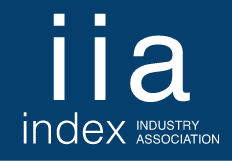A clear majority of FTSE 100 constituents are not following through on climate-related disclosures despite making net zero pledges, according to findings from Insig AI.
The asset management-focused AI and machine learning company said 70% of companies in the UK large-cap benchmark failed to meet stakeholder expectations on climate-related disclosures between 2015 and 2021.
Insig AI identified 30 companies that are “setting the bar” on the volume of disclosure investors can expect on how debt and equity issuers are managing their climate-related risk, decarbonisation efforts and shift to net-zero.
Within this number were “leaders” such as consumer discretionary giants Associated British Foods, Sainsbury’s and Coca-Cola.
Meanwhile, sector peers including Tesco, Ocado and Imperial Brands were deemed “laggards”.
Overall, the reporting volume of the bottom 30 reporting companies on climate issues was 87% lower than the “leaders” group in 2021.
Commenting on the results, Diana Rose, head of ESG research at Insig AI, said: “The UK has an ambition to be a centre for sustainable finance and our largest corporations will have to get better at making more information available.
“Despite the burden that comes with comprehensive reporting, other benefits come from engaging on these challenges and it’s a strategic opportunity to take leadership as we transition to a low carbon economy.”
Companies’ efforts to report on climate issues – and ESG more broadly – will be of increasing importance as investors face growing pressure from sustainability-minded clients.
According to the Index Industry Association’s annual ESG survey of 300 asset managers, 76% now integrate ESG when running both passive and active fixed income mandates, alongside 74% of passive equity mandates.
It is also worth noting no company is immune to ESG cold-shouldering when it comes to a lack of reporting.
In May, energy transition darling Tesla was ejected from the S&P 500 ESG index after failing to disclose an explicit carbon strategy, business codes of conduct and failing to report on key ESG metrics.
Rose added: "The Tesla case is a reminder that while there are multiple places to gather evidence of a company’s ESG profile, publicly available documents are the fundamental way in which companies are expected to report investment-relevant ESG information and be held to account."
Research from MSCI found although emissions produced by listed companies are down 5.6% from their pre-pandemic highs, the average public company will have to cut its carbon intensity by an average of 8-10% a year between now and 2050 to achieve net zero.
The world’s largest index provider added current and implied emissions suggest only 46% of companies are on track for the Paris Agreement’s upper 2°C warming target, a number which is only based on reported data and best estimates.
Related articles




